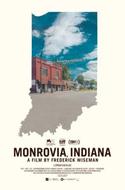Portland New Urbanist Joe Cortright has rarely seen a high-density development he didn’t like. Like Marxist economists who always begin their papers by referring to quotations from Karl Marx, Cortright takes his cues from Jane Jacobs. read more »
Tulsa, Oklahoma Will Pay You $10,000 to Move There
Tulsa is joining the parade of places that are providing economic development incentives to people who are willing to relocate there. I previously mentioned Vermont’s program and also that of a Cincinnati suburb. read more »
- Login to post comments
The Gig Economy, Americans and The Future
The rise of automation and artificial intelligence is keeping many Americans up at night, worrying about their jobs, and certainly those of their children. The World Bank predicts that 57 percent of all jobs in developed countries could be automated in the next two decades. Some studies suggest that almost half of all current jobs will be made redundant while others suggest that past technological innovation created enough new jobs to make for those lost. read more »
- Login to post comments
Employment Access in US Metropolitan Areas (2017)
Much of the US population of the United States is located in its major metropolitan areas, those with more than one million population. In 2017, the 53 major metropolitan areas had 56% of the population, and they attracted two-thirds of the population growth from 2000 (present geographical delineation). Economic research, such as by Remy Prud'homme and Chang-Woon Lee at the University of Paris as well as David Hartgen and M. read more »
- Login to post comments
Monrovia, Indiana, Idyll or Elegy?
Frederick Wiseman turned his documentary filmmaking lens to the Midwest in his new work Monrovia, Indiana. My review of the film is now online at City Journal. Here is an excerpt:
"Wiseman spent ten weeks filming in this small Indiana town of about 1,500 people, creating a fair and insightful portrait of a section of the rural Midwest. He shows us quotidian aspects of life in Monrovia that are likely exotic to a typical big-city documentary-film audience: corn and hog farming, locals holding court at the town diner, a mattress-sale fundraiser for the local school, a farm-equipment auction, a Lion’s Club board meeting, and more. read more »
- Login to post comments
The View from Hudson Street—With Thoughts on Science and Orthodoxy
Two audacious quotes in planning literature underpin this article and substitute for an introduction: read more »
- Login to post comments
The Suburbs and the GOP
In this year’s elections, particularly in California, the suburbs spoke, and essentially destroyed Donald Trump and the Republican Party. In affluent suburban districts once controlled by the GOP – outside Houston, Dallas, Atlanta, Seattle, Kansas City, Philadelphia and Orange County — long held GOP seats have flipped and may prove unlikely go back to the GOP unless Democrats alienate their new constituents. read more »
- Login to post comments
Energy Storage Isn’t Ready for Wide Deployment
When understanding and examining energy storage for wide-scale, societal deployment that is scalable, affordable and reliable these factors need to be included: energy security, renewable power production and cyber security. At this time energy storage doesn’t meet any of these criteria. read more »
- Login to post comments
Jeff Bezos Is Right at Home in the D.C. Swamp, but Amazon Might Have Bit Off More Than It Can Chew with the Big Apple
It turns out that tech oligarchs aren’t much better than old dogs at learning new tricks. By splitting his much coveted supposed second headquarters between New York City and greater Washington D.C., Amazon’s Jeff Bezos is repeating what worked for him in Seattle while saying “yes, sir” to power. read more »
- Login to post comments
Cars and Urban Mobility
Schlomo ‘Solly’ Angel is a world renowned urbanist and author of countless books including “Atlas of Urban Expansion”, “Planet of Cities” and “Tale of Scale.” He is adjunct professor at New York University (NYU) and senior research scholar at the NYU Stern Urbanization Project, where he leads the Urban Expansion initiative. He has advised the United Nations, the World Bank, and the Inter-American Development Bank (IDB). read more »





















